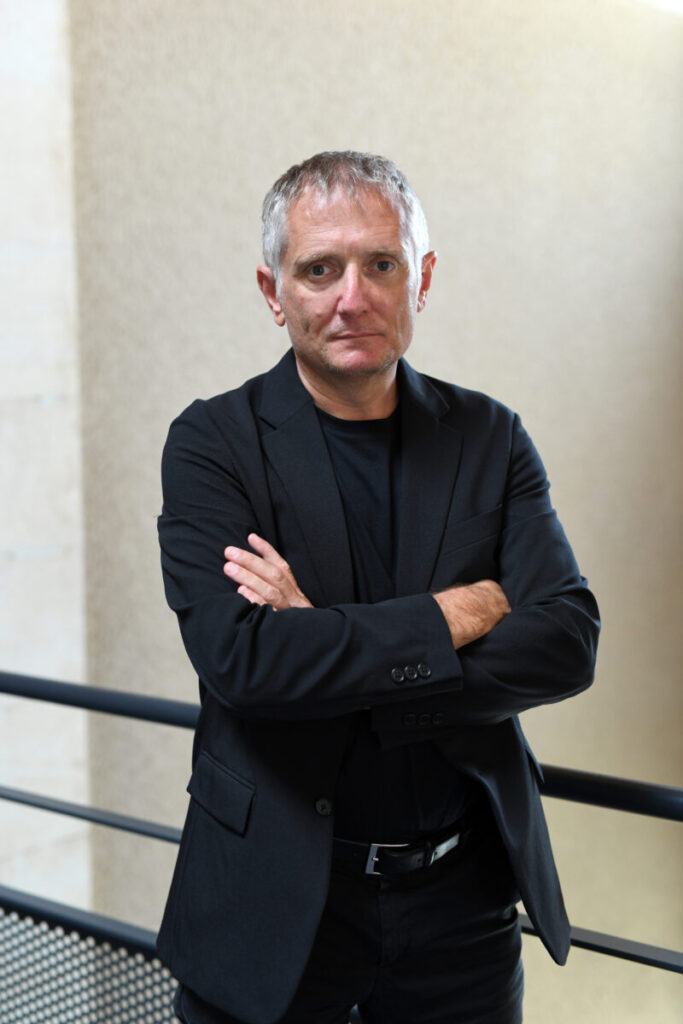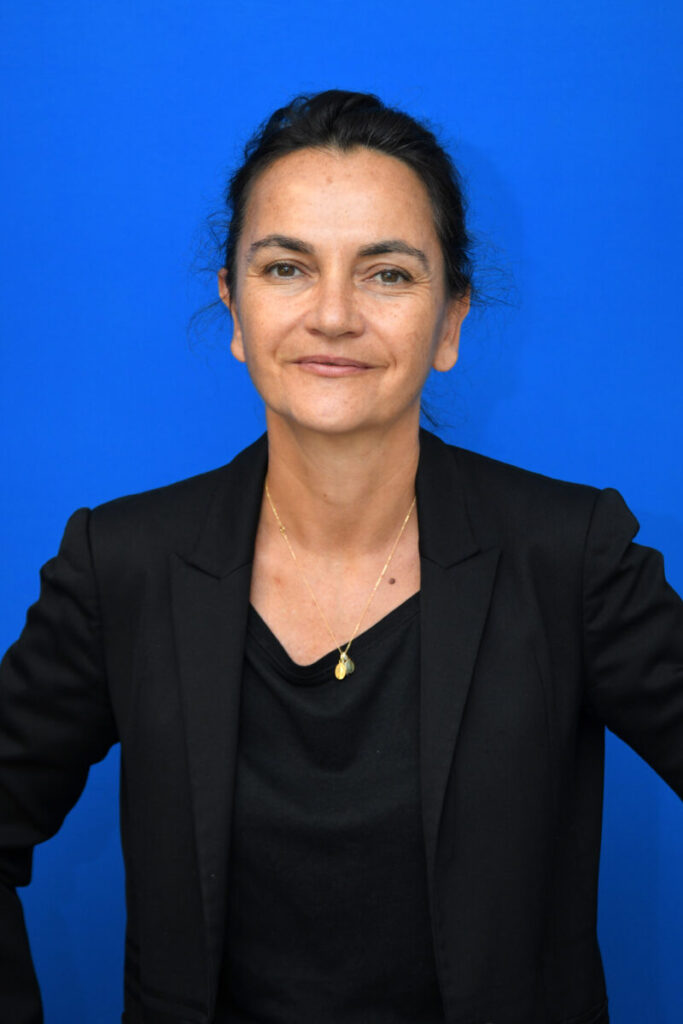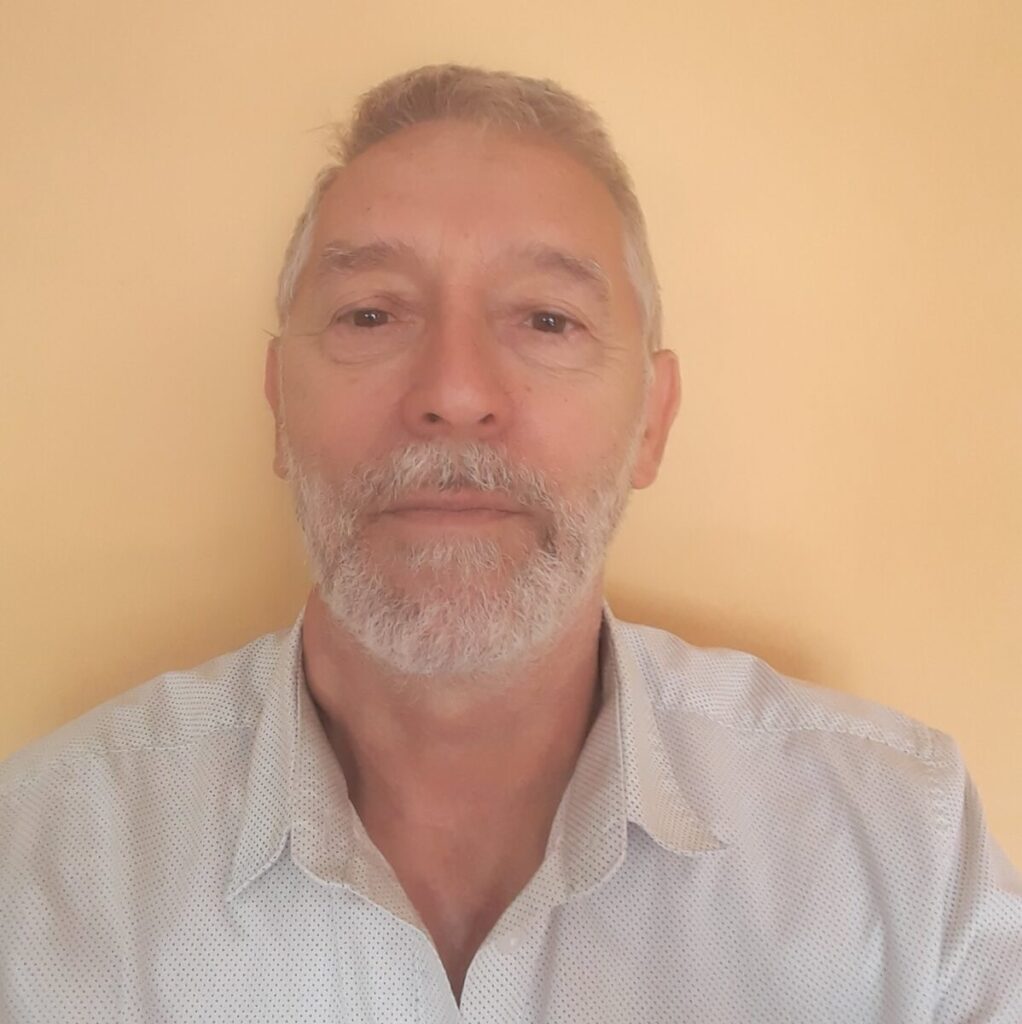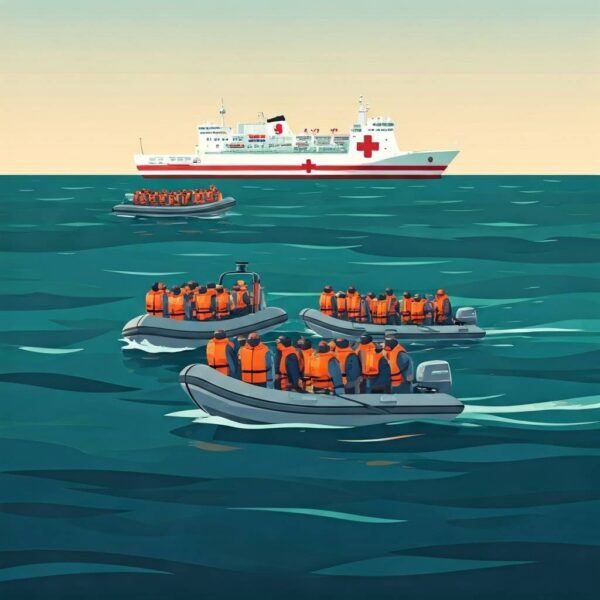Interview with Bernard Mossé, scientific director of NEEDE Méditerranée, with François Crémieux, general director of the Assistance Publique - Hôpitaux de Marseille (APHM) and Émilie Garrido-Pradalié, director of innovation at APHM.
#5 The NAVIRE-AVENIR project: a hospital ship for rescue at sea
BM : I return to the question of hospitality. APHM is participating in a large-scale project that I was able to support for a time on behalf of our association NEEDE Méditerranée, thanks to Émilie: the NAVIRE-AVENIR project, the creation of a hospital ship for the rescue of migrants in the Mediterranean Sea.
F.C. : To begin with, I would like to say that our involvement is primarily a matter of soul.
Before talking about the construction of a ship, we must discuss our involvement in the idea that underpins this construction. I emphasize this a lot. The mere fact that we are able to keep alive the idea of building a ship dedicated to the care of migrants at sea could be perceived, to some extent, as a waste of time. Especially by those who are currently involved in rescue operations. Is the urgency really to reflect on the idea of an emblematic boat or an emblematic fleet of boats? You just recalled the tens of thousands of deaths in the Mediterranean Sea. Is the urgency not to save as many people as soon and as quickly as possible, and thus to devote all our energy and all our money to this mission? Undoubtedly. But we must also continue to keep alive the idea that we could change the game and ensure that rescue at sea is not solely an emergency rescue with makeshift means… But that it engages, in the face of these tragedies, what remains of our humanity. And thus our first contribution is to keep alive the idea that building a boat, or building a fleet, is beyond the act of rescue, working on the idea of a continuity of acts of humanity between arrival on the ship and arrival on land.
BM : In the spirit of the International Convention (Sarr, 1979) which obliges sailors not only to rescue people in distress but to "bring them to a safe place"...
F.C. : ... to bring them to a safe place, yes, but this starts immediately with the welcoming gesture, the way this vessel is identified at sea by people on a zodiac a few hundred meters away. But then there are the first encounters, the first words exchanged, the first food swallowed, and then the disembarkation. Where and how does this happen? But also the administrative questions about access to rights, how to contact loved ones, how to obtain a phone chip, and what else… The gestures of hospitality begin on the deck of the ship. But for the people who are rescued, we must organize a certain continuity with the consideration of what happened before arriving on the boat and what will happen after. We mentioned earlier the Maison des Femmes: one of the characteristics described by many academics and activist members is the almost systematic violence inflicted on women during their migratory journey; a journey that can last several years and of which women are particularly the victims.
And thus the specific care of this issue is as important as the rescue itself.
The project must therefore take into account all aspects of rescue in continuity from rescue at sea to reception on land.
É.G-P. : This is reflected in what may seem like details such as the symbols surrounding the ship, whether it is its design, its flag, its signage… These are questions that are ultimately as important as the construction of the building itself. There are artists who have participated in the designs of the infirmary, dietitians who have worked on the food on board, technicians who have worked on the energy flows necessary on the boat, etc.
BM : I have been able to follow the evolution of this NAVIRE-AVENIR project in recent months, thanks to Émilie. Where do we stand? Is there hope to see it materialize in the coming years?
F.C. : This is not a reasoned hope. The idea of realizing this building is probable and I even hope to see several built one day. Here, we enter into very operational logics, both financial, construction, architecture, etc. Having this perspective in mind is essential to keep the idea alive. Between the idea and its realization, there are a few tens of millions of euros to find. In any case, carrying this project only makes sense because the idea can be realized. Now, what is the probability that it will actually materialize? I don't know. The answer to your question is therefore by definition, yes.
BM : Can I summarize by quoting Gramsci: pessimism of reason, optimism of will?
F.C. : Pessimism of reason, no. Optimism of will, yes, because without will, it will not work. As of now, the financial trigger, the few tens of millions of euros have not been found. But I am convinced that they should be a non-issue. I deal with public finances. The public health budget is 1.9 billion euros. And I am used to handling these figures: I am accountable for the money for the care of Marseillais by their public assistance. And so I oscillate between moments when on one side I observe the debates on the budget today where we juggle with the figures of a very rich country, and on the other side, I see the figures that seem derisory on the Navire-Avenir project or on the functioning of the Hospital. And sometimes, it’s not even a few tens of millions of euros, it’s a few thousand euros that may be lacking in a department of the public assistance, to buy the necessary equipment. We are in a world that is constrained, politically, by the priorities we collectively set. And probably the Navire-Avenir project is not the first political priority at the moment in France. We are still caught up in an optimism, if not of will at least of action: it is the optimism of movement.
And so we are indeed contributing to this project because it resonates with all the discussion we have just had about what underpins the collective commitment of the professionals at APHM. We do not always all agree, we the 18,000 professionals of APHM, on our relationship to the Mediterranean, to migration, to rescue at sea. And we certainly do not all have the same political opinions. But it so happens that we all have in common working in an environment where this question of attention to the most vulnerable is embodied by the professions we practice. And even more so for those in white coats in the departments than for me. But still, we are all marked by this embodiment of a certain form of faith, of acts of humanity.
The project to create a hospital ship for rescue at sea and the reception of migrants is a beautiful and profound manifestation of this.
Biographies

François Crémieux is a senior health official with a unique and diverse background. Graduated in economics from the universities of Paris Dauphine and Lancaster (UK) and in public health from the Paris Diderot medical faculty, he has been leading the Assistance Publique - Hôpitaux de Marseille, APHM, since June 2021. He has had a long career as a hospital director that has taken him from the Clermont hospital center in Oise to the hospital in Kosovska Mitrovica in Kosovo, including roles as an advisor to Marisol Touraine, Minister of Social Affairs and Health, and Deputy Director General of APHP under Martin Hirsch. His commitment is reflected in multifaceted actions: a volunteer in Bosnia in the 1990s, during the war; a long-time member of the editorial board of the journal Esprit; an advocate for a frontline hospital to reduce social inequalities in access to care.

Emilie Garrido-Pradalié is a hospital director in charge of innovation at APHM. Graduated in theoretical and applied economics from the University of Montpellier and in computer science and information systems from the École des Mines d'Alès, she began her career in the public service within the Montpellier Metropolis led by Georges Frêche. She joined the CHU of Montpellier in 2008 to lead change management activities with human, medical, and non-medical resources, then joined APHM to lead research from June 2018.

Bernard Mossé Historian, Research, Education, Training officer of the NEEDE Méditerranée association. Member of the Scientific Council of the Camp des Milles Foundation – Memory and Education for which he was the scientific director and coordinator of the UNESCO Chair "Education for Citizenship, Human Sciences, and Convergence of Memories" (Aix-Marseille University / Camp des Milles).
